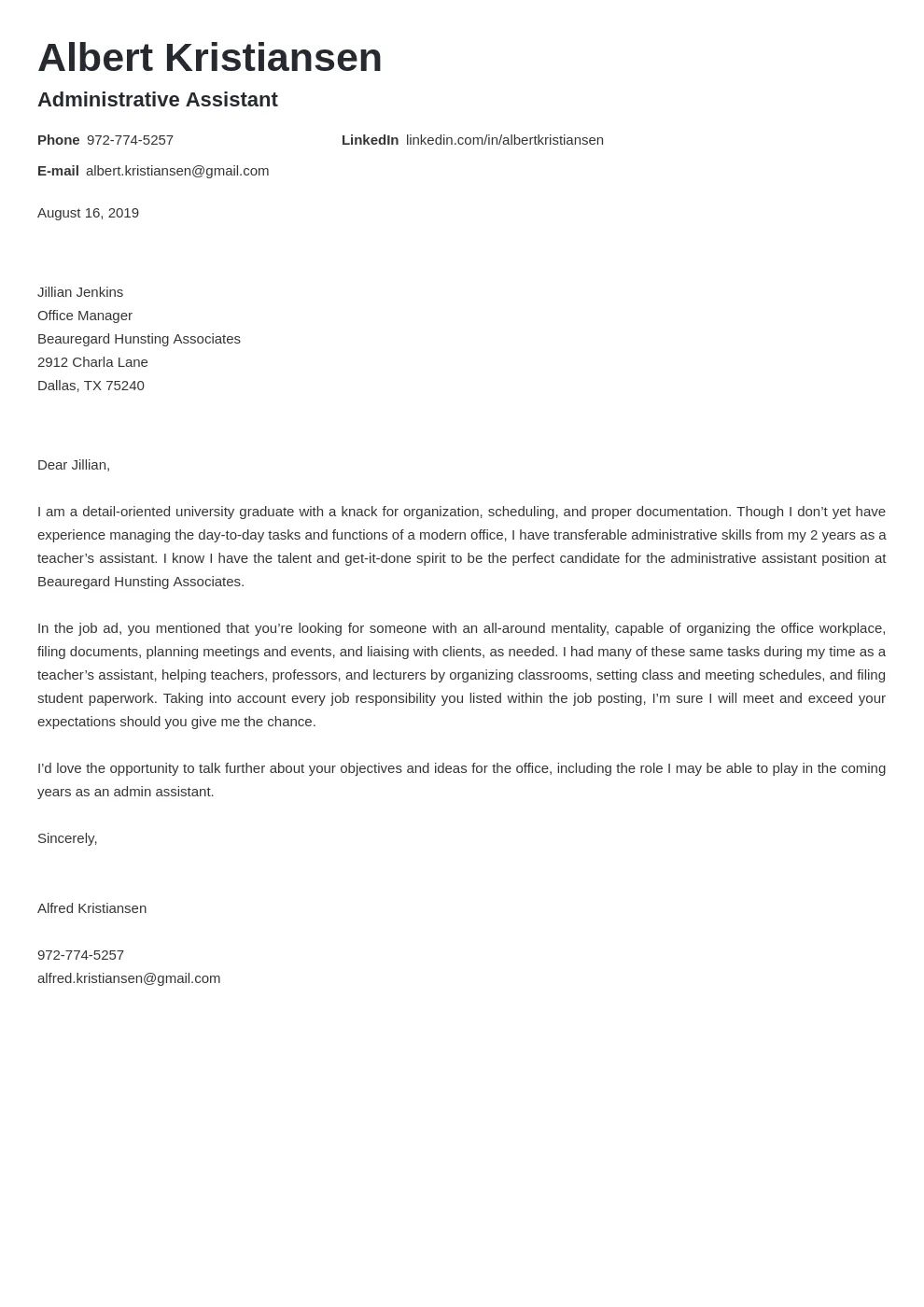Why a Great Admin Assistant Cover Letter Matters
In the competitive job market, an exceptional cover letter is not just a formality but a crucial tool that can significantly impact your chances of landing an interview. For administrative assistant positions, where attention to detail and strong communication skills are paramount, a well-crafted cover letter is your first opportunity to demonstrate your capabilities and personality. It serves as your advocate, introducing you to a potential employer and providing a glimpse into your professional background and aspirations. Without a compelling cover letter, your resume might be overlooked, especially in a field with many qualified candidates. It showcases your writing skills, organizational abilities, and genuine interest in the role, setting you apart from other applicants and giving you a distinct advantage.
Understand the Importance of a Cover Letter
The cover letter goes beyond simply reiterating the information on your resume; it’s your opportunity to provide context and personality. It allows you to elaborate on your skills and experiences, explaining how they align with the specific requirements of the administrative assistant position. A cover letter is where you can demonstrate your understanding of the company’s needs and showcase your enthusiasm for the role. By addressing the hiring manager directly, you personalize your application and make a stronger connection. Furthermore, a well-written cover letter highlights your communication proficiency, a critical skill for any administrative assistant. This document is your chance to show that you possess both the technical and interpersonal skills needed to excel in the position. This document is your chance to show that you possess both the technical and interpersonal skills needed to excel in the position.
Showcasing Your Professionalism and Skills
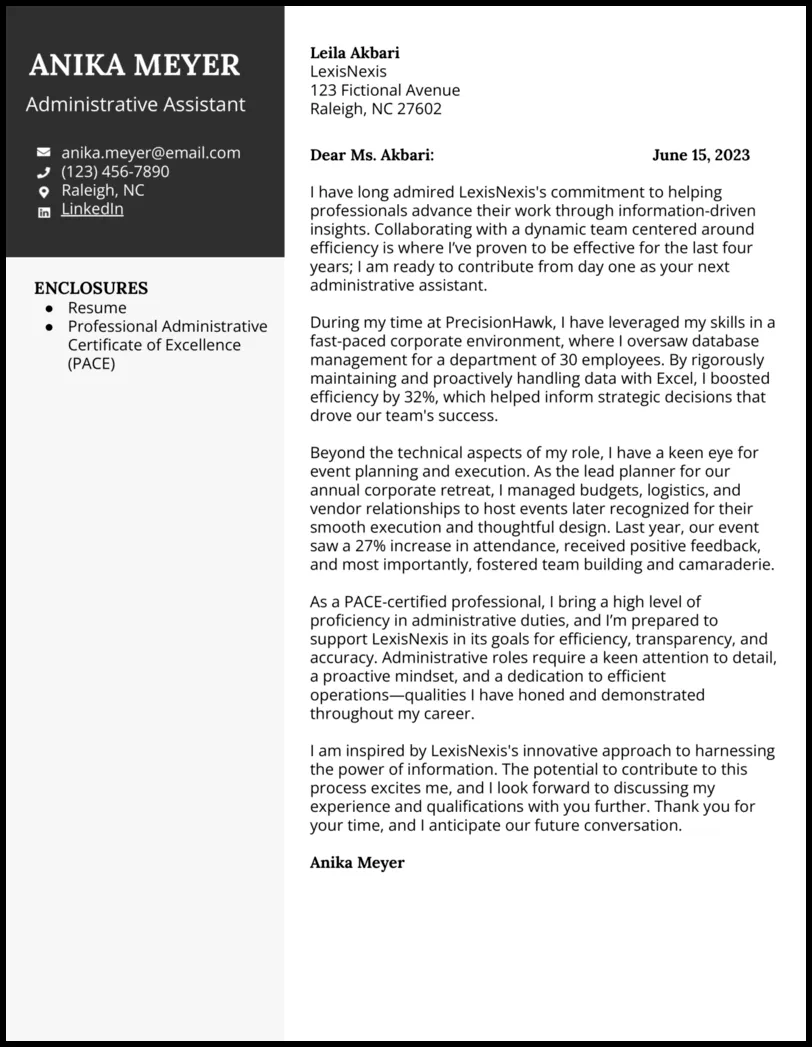
A cover letter is your first impression, and it should reflect your professionalism. Proper grammar, spelling, and formatting are essential, as they demonstrate your attention to detail, a fundamental quality for an administrative assistant. Highlight the skills most relevant to the job description, such as organizational abilities, time management, and proficiency in relevant software or systems. Tailor your cover letter to each position, ensuring that you address the specific requirements and responsibilities. For instance, if the job emphasizes customer service, showcase your experience in handling inquiries and resolving issues effectively. If the role requires managing schedules or coordinating events, highlight your experience in these areas. The goal is to provide concrete examples that prove your suitability for the position, making it clear to the hiring manager that you possess the skills and qualities needed to succeed.
Key Components of a Successful Cover Letter
A successful cover letter includes specific components, from your contact information to a persuasive closing. These elements work in harmony to present a comprehensive view of your qualifications. Each section of the letter should be meticulously crafted to support your application and encourage the hiring manager to consider your application. The layout is as important as the content; a professional format that’s easy to read will ensure your message is received effectively. Proper use of keywords from the job description will help to highlight the value you bring to the role and increase your chances of success. Ensure your cover letter has a clear structure and compelling content, all while reflecting your qualifications for the role.
Contact Information & the Initial Greeting
Begin with your contact information, including your full name, phone number, email address, and optionally, your LinkedIn profile URL. Always address the hiring manager by name whenever possible, and be sure to spell it correctly. Research the company and use the correct title for the person you are addressing. A generic greeting such as ‘To Whom It May Concern’ should be avoided, as it suggests a lack of effort and research. When you directly address the hiring manager by name, you create a personal connection and show that you’ve taken the time to learn about the organization. If you are uncertain of the hiring manager’s name, use a professional and respectful salutation like ‘Dear Hiring Manager’ or ‘Dear [Department Name] Team’.
Crafting a Compelling Opening Paragraph
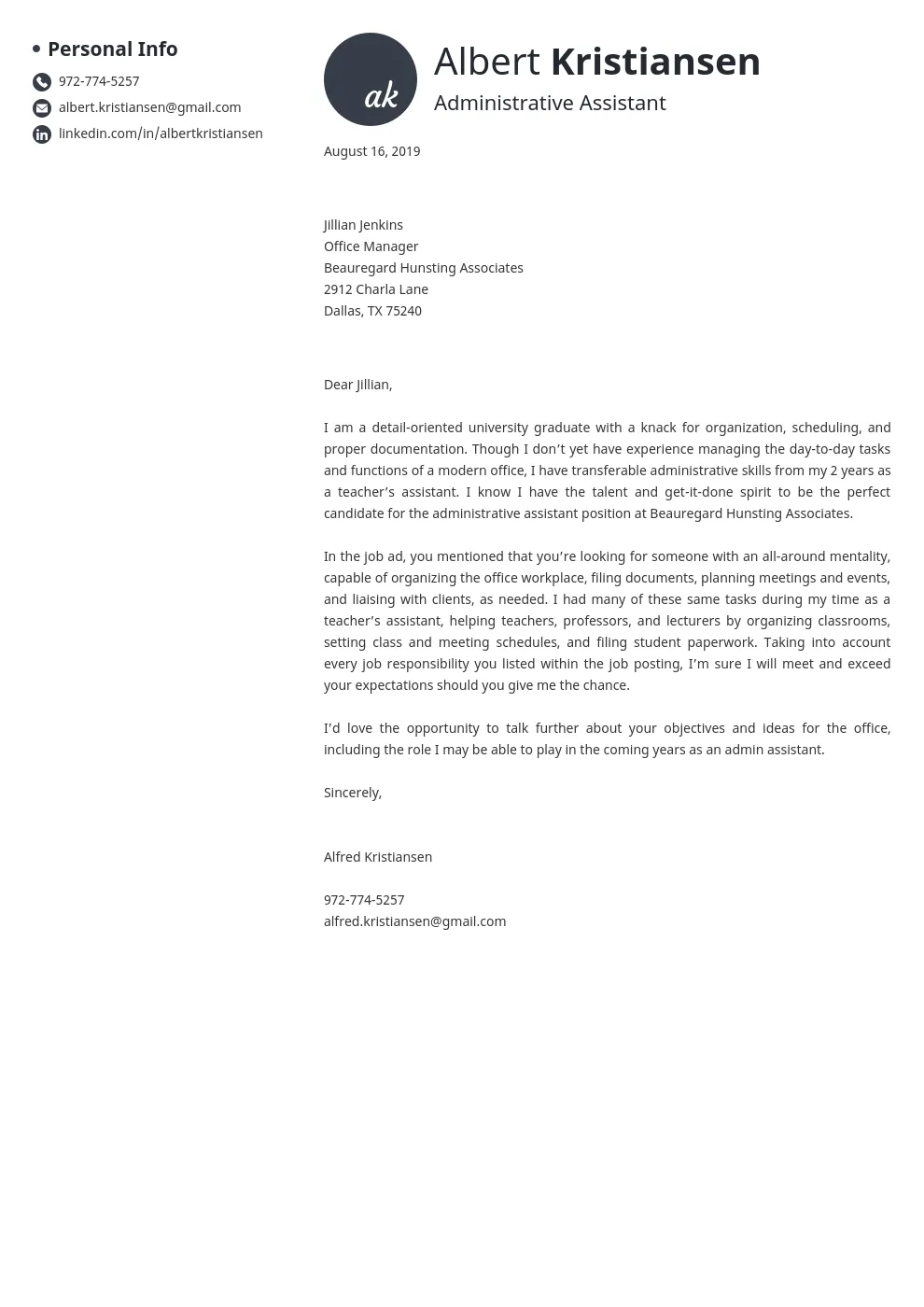
Your opening paragraph is crucial for capturing the reader’s attention. It should clearly state the position you are applying for and briefly summarize why you are a good fit. Highlight your most relevant skills or experience that align with the job requirements. Consider starting with a strong statement about your enthusiasm for the role or the company. This paragraph should instantly engage the reader and make them want to learn more. A compelling opening can set you apart from other applicants, making your application stand out. It should also give a sense of your personality, showing you are not just a qualified candidate but a person the hiring team wants to meet.
Highlighting Your Relevant Skills and Experience
In the body of your cover letter, provide specific examples that demonstrate your administrative abilities. Detail your experience with tasks such as managing schedules, handling correspondence, preparing reports, or coordinating events. Use the job description as a guide to identify the key skills and experiences the employer is seeking. Quantify your achievements whenever possible; for instance, you could say, ‘Improved office efficiency by 15% through the implementation of a new filing system.’ Use action verbs to showcase your accomplishments and responsibilities, creating a vivid image of your professional capabilities. Your letter should clearly demonstrate how your skills and experience align with the role’s requirements. Demonstrate your strengths and your ability to make a positive impact in the position.
Detailing Your Administrative Abilities
Focus on showcasing the specific administrative skills that the job description highlights. These can include organizational skills, proficiency in office software (Microsoft Office, Google Suite), communication skills (both written and verbal), and experience with office equipment (printers, scanners, etc.). Provide concrete examples of how you have used these skills in previous roles to accomplish goals or solve problems. If the job requires experience with a specific software or system, be sure to mention your familiarity. For example, ‘Managed all incoming and outgoing correspondence, ensuring timely delivery and accurate record-keeping.’ Clearly articulate your skills and how you apply them in a professional setting. By providing concrete examples, you demonstrate your competency and potential value to the company.
Quantifying Achievements for Impact
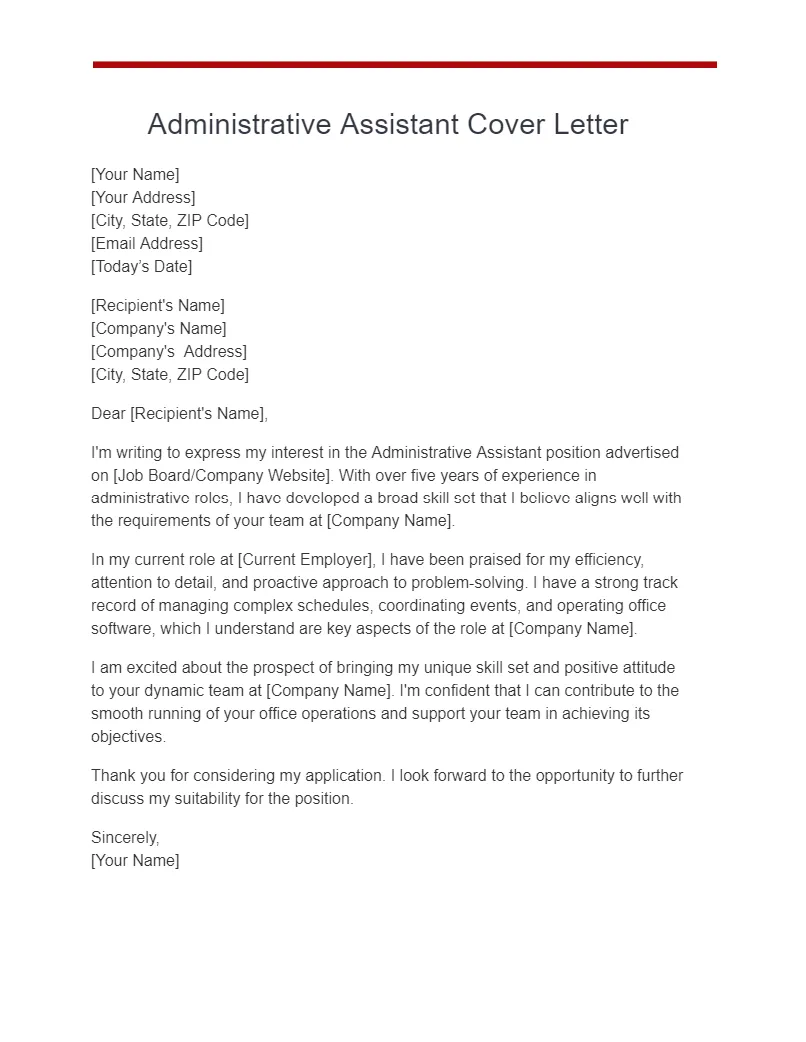
Whenever possible, quantify your achievements to make a stronger impact. Numbers and percentages provide concrete evidence of your success and demonstrate the value you brought to previous positions. Rather than simply stating, ‘Managed social media accounts,’ you could write, ‘Increased social media engagement by 30% through strategic content planning.’ Instead of ‘Improved office organization,’ try ‘Implemented a new filing system that reduced document retrieval time by 20%.’ These figures make your accomplishments more tangible and impressive. By using quantifiable metrics, you show employers the tangible results of your work and how you contribute to a company’s bottom line. This strategy enhances your credibility and sets you apart from other applicants.
Demonstrating Your Soft Skills and Personality
Administrative assistant roles require more than just technical skills; they also need strong soft skills. In your cover letter, highlight your interpersonal skills, such as communication, teamwork, problem-solving, and adaptability. Share examples of how you have worked with others, resolved conflicts, or demonstrated initiative. Show your personality by mentioning your enthusiasm for the role and the company. Your goal is to show the hiring manager that you are not only competent but also a good fit for the company culture. Describe how you have worked with others to solve problems or coordinate events. Showing a positive attitude and a willingness to learn can significantly enhance your application, demonstrating that you’re not only qualified but also someone who would fit in well with their team.
Writing a Strong Closing & Call to Action
Your closing paragraph should summarize your interest in the position and reiterate your key qualifications. End by expressing your enthusiasm for the opportunity and a call to action, such as requesting an interview. Thank the hiring manager for their time and consideration. Avoid generic phrases like ‘Thank you for your time’; instead, personalize it with a specific reference to the job or company. Make sure you offer an invitation for further discussion, such as saying you are eager to discuss your qualifications further in an interview. Your closing paragraph is the last impression you make, so make it a strong one that inspires the hiring manager to contact you. Your ability to express your enthusiasm and ask for the next steps can make the difference between getting a call back or being passed over.
Expressing Gratitude and Next Steps
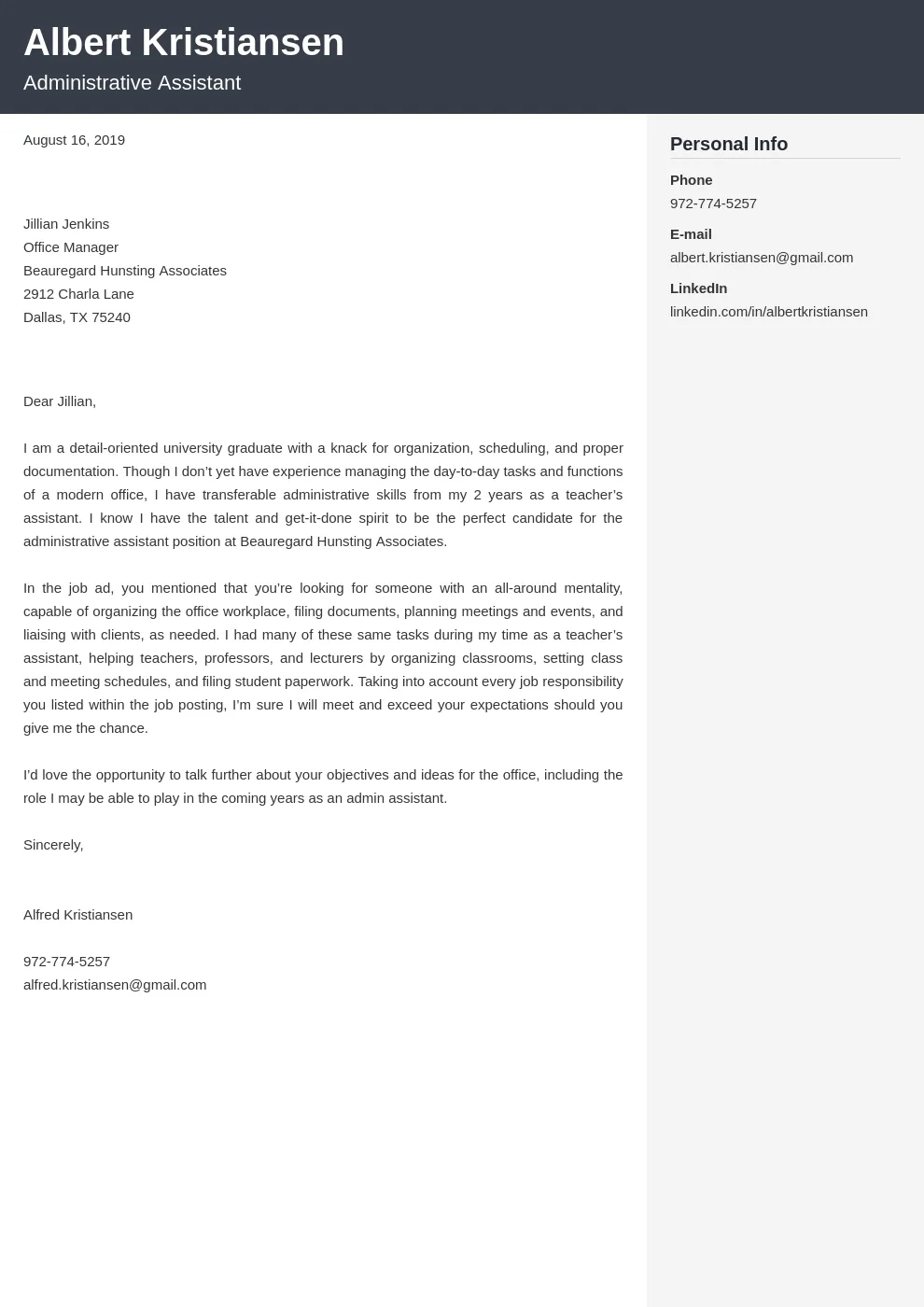
Always express your gratitude for the hiring manager’s time and consideration. Restate your enthusiasm for the role and the company. Make sure to include a call to action, stating that you are available for an interview at their convenience and that you look forward to hearing from them soon. Include your contact information again for easy reference, especially your phone number and email address. A strong closing paragraph leaves a positive final impression, reinforcing your interest in the position and making it easy for the hiring manager to contact you. A well-crafted closing paragraph should leave a lasting, positive impression.
Formatting and Design Best Practices
The appearance of your cover letter is just as important as its content. Choose a clean and professional font, such as Times New Roman, Arial, or Calibri, and use a font size between 11 and 12 points for easy readability. Use standard margins (1 inch on all sides) and single-space the body of the letter, with a double space between paragraphs. Ensure your letter is well-organized with clear headings and bullet points to break up large blocks of text. Use bullet points to highlight key skills and achievements. Your cover letter should be visually appealing, easy to read, and free of distracting elements. Formatting choices are not just aesthetic; they contribute to the overall professional image you are trying to portray.
Choosing the Right Font and Layout
Select a font that is easy to read and professional. Avoid using fancy or overly stylized fonts that can distract the reader. Keep your layout simple and clean. Use a clear header with your contact information, followed by the date, the hiring manager’s name (if known), and the company’s address. Ensure your cover letter is well-structured with clear headings and subheadings that organize the content logically. The layout should be easy to follow and visually appealing, making it a pleasant experience for the reader. Make sure the spacing is consistent, and the overall document has a professional look.
Proofreading and Editing for Perfection
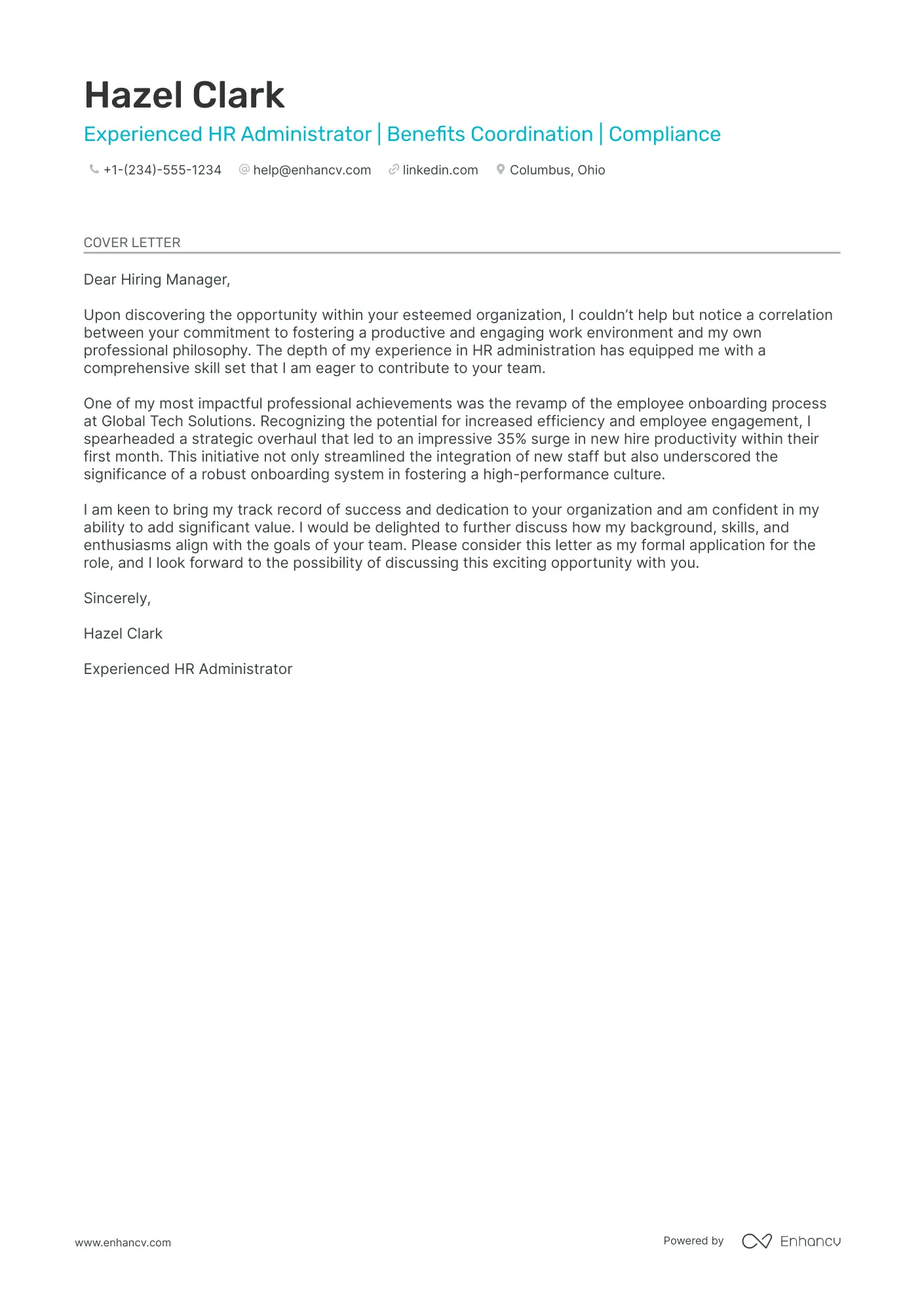
Before submitting your cover letter, proofread it meticulously for any errors in grammar, spelling, and punctuation. Even minor errors can create a negative impression and suggest a lack of attention to detail. Ask someone else to review your cover letter as a second set of eyes can often catch mistakes you might have missed. Pay close attention to the consistency of your formatting, and ensure your sentences are well-structured and your language is clear and concise. By proofreading, you ensure the letter is perfect and communicates your professionalism. Proofreading should involve checking all aspects of your cover letter, from the first word to the last, to guarantee the highest quality.
Common Mistakes to Avoid
Many common mistakes can undermine your cover letter and reduce your chances of getting an interview. Avoid generic phrases and clichés, as they show a lack of originality and effort. Ensure that you tailor your letter to each specific job; a generic cover letter does not demonstrate the required enthusiasm. Always proofread your letter thoroughly for any errors in grammar, spelling, and punctuation. Neglecting to proofread is one of the most common and easily avoidable mistakes in the job application process. Make sure your cover letter meets the needs of the company and the job description.
Generic Phrases and Overused Clichés
Avoid phrases like ‘I am writing to express my interest’ or ‘I am a team player.’ These clichés are overused and do not convey any specific information about your skills or experience. Instead, use specific examples that demonstrate your abilities. For example, instead of saying ‘I am a hard worker,’ describe a situation where your hard work led to a positive outcome. Instead of generic expressions, use original, unique language that shows your personality. Original language will grab the attention of the hiring team and ensure you make a positive impression.
Neglecting to Tailor Your Letter
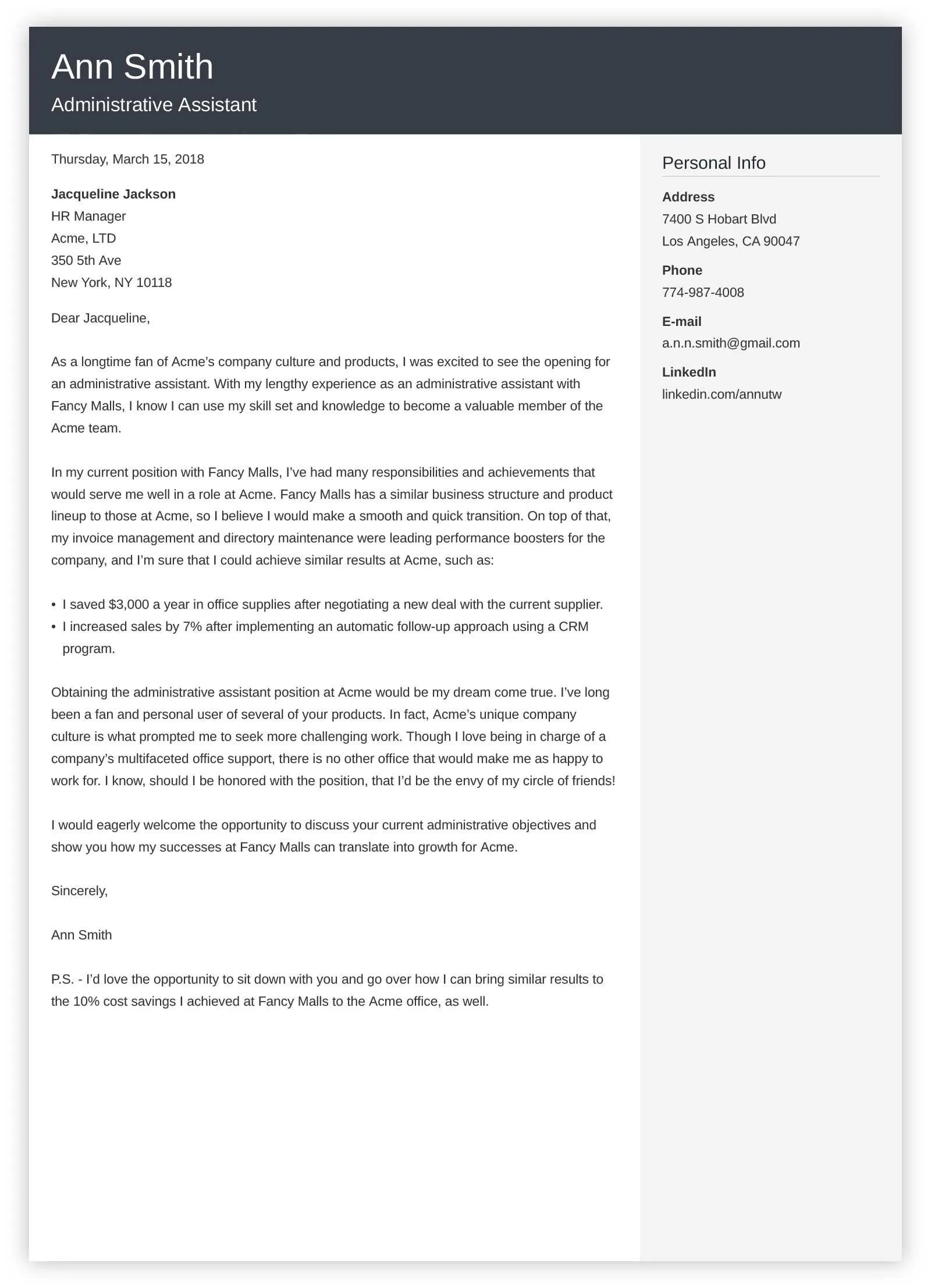
One of the most critical mistakes is failing to tailor your cover letter to each job. Using a generic cover letter shows a lack of interest in the specific opportunity and the company. Review the job description carefully and address the specific requirements and responsibilities. Use keywords from the job description in your letter to demonstrate that you understand the role and that your skills align with the company’s needs. Highlight how your skills and experiences meet the requirements outlined in the job description. If your letter is specifically tailored for the job, then your chances of getting an interview greatly increase.
Overlooking Proofreading
Errors in grammar, spelling, and punctuation can significantly damage your chances of landing an interview. Proofread your cover letter carefully before submitting it. Use a grammar checker, but also read the letter aloud to catch any awkward phrasing or errors that may be missed by software. Ask a friend or family member to read your letter to provide a second opinion. Take the time to ensure your cover letter is free from errors. Making sure your cover letter is perfect shows your commitment to doing your best work.
Examples of Effective Cover Letter Sections
To help you craft a compelling cover letter, let’s look at some examples. These can serve as a starting point for your own letter and help you to communicate your abilities and qualifications effectively. Adapting these examples to your own experiences and the job requirements can increase your chances of success. Consider the specific role and company when customizing these examples.
Header and Greeting Examples
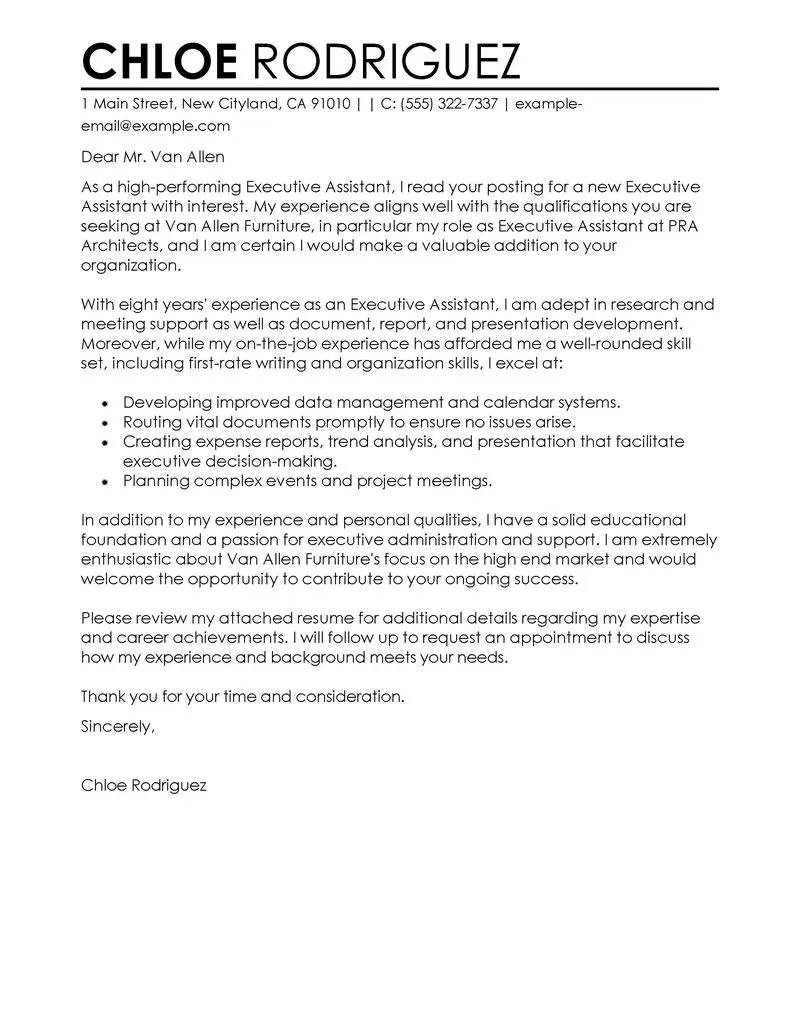
Your header should include your contact information. Examples include: ‘Your Name, Your Phone Number, Your Email Address, Your LinkedIn Profile URL (Optional)’. Your greeting should be professional, starting with ‘Dear Mr./Ms./Mx. Last Name’ if you know the hiring manager’s name, or ‘Dear Hiring Manager’ if you don’t. Avoid generic greetings such as ‘To Whom It May Concern’. Be sure to spell the name correctly. Use the correct title of the hiring manager.
Skills and Experience Paragraph Examples
When describing your skills and experience, use specific examples. Instead of saying ‘I am organized,’ you could say ‘Organized and managed a filing system that reduced document retrieval time by 25%.’. Similarly, rather than ‘I have strong communication skills,’ you might say ‘Communicated effectively with clients and vendors, resolving issues efficiently and maintaining positive relationships.’ Use action verbs to describe your achievements and show how your skills have made a positive impact. Quantify your achievements whenever possible.
Closing Paragraph Examples
Your closing paragraph should reiterate your interest in the position and include a call to action. For example, ‘I am eager to discuss how my skills and experience can benefit your team. I am available for an interview at your earliest convenience and can be reached at [phone number] or [email address]. Thank you for your time and consideration.’ Always end with a professional closing such as ‘Sincerely’ or ‘Best regards’, followed by your name. Make a positive impression with your closing by re-emphasizing your enthusiasm for the position.
Admin Assistant Cover Letter Template
A cover letter template provides a basic structure that you can customize to fit your needs. Start with your contact information, then add the date and the hiring manager’s contact information. Your letter should include an introduction paragraph, detailing your interest and suitability for the position. The body of the letter should showcase your skills and experience, providing specific examples. Conclude with a strong closing paragraph including your contact information and a call to action. Use a template as a starting point for crafting your customized cover letter. Make sure you tailor the template to reflect your personal qualifications and the requirements for the job.
Adapting the Template to Your Needs
When using a template, tailor it to reflect your specific experience and the requirements of the job. Customize the opening paragraph to express your enthusiasm for the position and the company. Modify the body paragraphs to showcase the skills and experiences most relevant to the role. Provide specific examples of your achievements, using action verbs and quantifiable results. Ensure the closing paragraph aligns with your overall message and includes a clear call to action. Adapting the template requires attention to detail to ensure your cover letter is customized for the job.
Modifying the Template Based on the Job Description
The job description is your guide to tailoring your cover letter. Identify the key skills and experiences the employer is seeking and ensure your letter addresses them. Use keywords from the job description throughout your cover letter to demonstrate your understanding of the role and your alignment with the company’s needs. Highlight how your experience matches the listed requirements, providing specific examples that showcase your capabilities. Customize your cover letter to highlight your abilities to meet the needs of the company and to show your suitability for the position.
Cover Letter Examples for Specific Situations
Different situations may require different cover letter approaches. Consider the nature of the company, whether it is an entry-level position, or a specific industry. Tailoring your cover letter to fit a particular context will increase your chances of making a positive impression. Adjust the tone, content, and focus of your letter depending on the job and the industry. Use research and experience to adapt your cover letter so it is effective in all situations.
Entry-Level Admin Assistant Cover Letter Example
An entry-level cover letter should emphasize any relevant skills you have, even if they come from non-professional experiences. Highlight your education, volunteer work, or any part-time jobs where you gained administrative skills. Show your enthusiasm for the role and your willingness to learn. You can also use this opportunity to talk about how your qualities would assist in your ability to succeed in the role. Keep it concise and focus on demonstrating your potential. Customize the letter to fit the job requirements and demonstrate that you will be successful. It is critical to show the hiring manager you are willing to learn the skills necessary to thrive in the role. This ensures you will increase your chance of getting an interview.
Experienced Admin Assistant Cover Letter Example
For experienced candidates, your cover letter should showcase your accomplishments and highlight the results you’ve achieved in past roles. Quantify your achievements whenever possible, using numbers and percentages to demonstrate your success. Focus on the key skills and experiences required for the specific position. Include a brief overview of your career progression and emphasize your contributions to previous companies. An experienced admin assistant should showcase accomplishments to demonstrate experience. Use the experiences to show you are well-suited to the position. Highlighting achievements will ensure you can provide the value the company needs.
Cover Letter for a Specific Industry
When applying for an administrative assistant position in a specific industry (healthcare, finance, tech, etc.), customize your cover letter to reflect the industry’s requirements and terminology. Research the company and tailor your letter to demonstrate your knowledge of the industry. Highlight any relevant experience or skills that align with the industry’s specific needs. If you have experience working with industry-specific software or handling sensitive information, be sure to mention it. Showing you are familiar with the industry terminology and challenges will make you a more attractive candidate.
Utilizing Action Verbs for Maximum Impact
Action verbs bring your accomplishments to life and make your cover letter more engaging. Instead of saying, ‘I was responsible for,’ use verbs like ‘Managed,’ ‘Coordinated,’ ‘Implemented,’ or ‘Streamlined.’ Using these types of verbs paints a picture of your skills. Use action verbs to begin your bullet points and describe your achievements, illustrating your contributions to previous roles. These verbs help demonstrate your abilities and highlight your qualifications in a concise and compelling manner. This can make your letter more powerful and increase its impact.
Action Verbs for Administrative Skills
For administrative skills, use verbs like ‘Organized,’ ‘Scheduled,’ ‘Managed,’ ‘Coordinated,’ ‘Processed,’ and ‘Maintained.’ For instance, instead of saying ‘I handled the schedule,’ write ‘Scheduled and coordinated all appointments, ensuring efficient time management.’ Instead of saying ‘I handled invoices,’ say ‘Processed and managed invoices, ensuring accuracy and timely payments.’ Using specific action verbs will demonstrate your proficiency in administrative tasks. Choosing the right action verbs will help highlight your capabilities and give you the best chance of getting an interview.
Action Verbs for Communication Skills
Highlight your communication skills with verbs such as ‘Communicated,’ ‘Collaborated,’ ‘Presented,’ ‘Wrote,’ and ‘Negotiated.’ For example, instead of saying ‘I communicated with clients,’ use ‘Communicated effectively with clients, resolving issues and maintaining positive relationships.’ Instead of saying ‘I helped with reports,’ use ‘Prepared and presented detailed reports to management, highlighting key findings.’ Using these strong verbs will show your ability to communicate effectively. This approach will demonstrate your communication abilities in any cover letter.
Action Verbs for Problem-Solving Skills
When showcasing your problem-solving skills, use verbs like ‘Resolved,’ ‘Implemented,’ ‘Improved,’ ‘Developed,’ and ‘Streamlined.’ For example, instead of ‘I solved customer issues,’ use ‘Resolved customer inquiries and complaints, resulting in a 95% satisfaction rate.’ Instead of saying ‘I helped with processes,’ use ‘Streamlined office processes, leading to a 10% increase in efficiency.’ The right action verbs can significantly enhance your cover letter and demonstrate your ability to overcome challenges and bring positive results.
Final Checklist Before Submitting Your Cover Letter
Before submitting your cover letter, complete a final checklist to ensure your application is polished and professional. Proofread every section of your letter for any errors in grammar, spelling, and punctuation. Verify that your contact information is accurate and up-to-date. Confirm that you have tailored your letter to the specific job description and company. Ensure you have used strong action verbs and quantified your achievements whenever possible. Make sure your letter is formatted correctly and that the layout is clear and easy to read. Make sure you have shown that you are a good candidate for the job and that you will be a good fit with the team.
Reviewing the Formatting and Structure
Carefully review the formatting and structure of your cover letter. Check the font, font size, and spacing to ensure they are consistent and professional. Ensure your letter is well-organized, with clear headings, paragraphs, and bullet points to break up large blocks of text. Verify that your header and closing are correctly formatted, with all the required information. Make sure your cover letter is easy to read, visually appealing, and well-structured. A well-formatted cover letter is easy to read and demonstrates attention to detail.
Ensuring Accuracy and Professionalism
Accuracy and professionalism are paramount. Review your cover letter for any factual errors or inconsistencies. Ensure your tone is professional, and avoid slang or informal language. Proofread your cover letter one last time, paying close attention to detail and checking for any typos. Always ask a friend or family member to review your cover letter for a fresh perspective. A professional cover letter reflects your commitment to providing the best work and your chances of landing an interview will increase.
